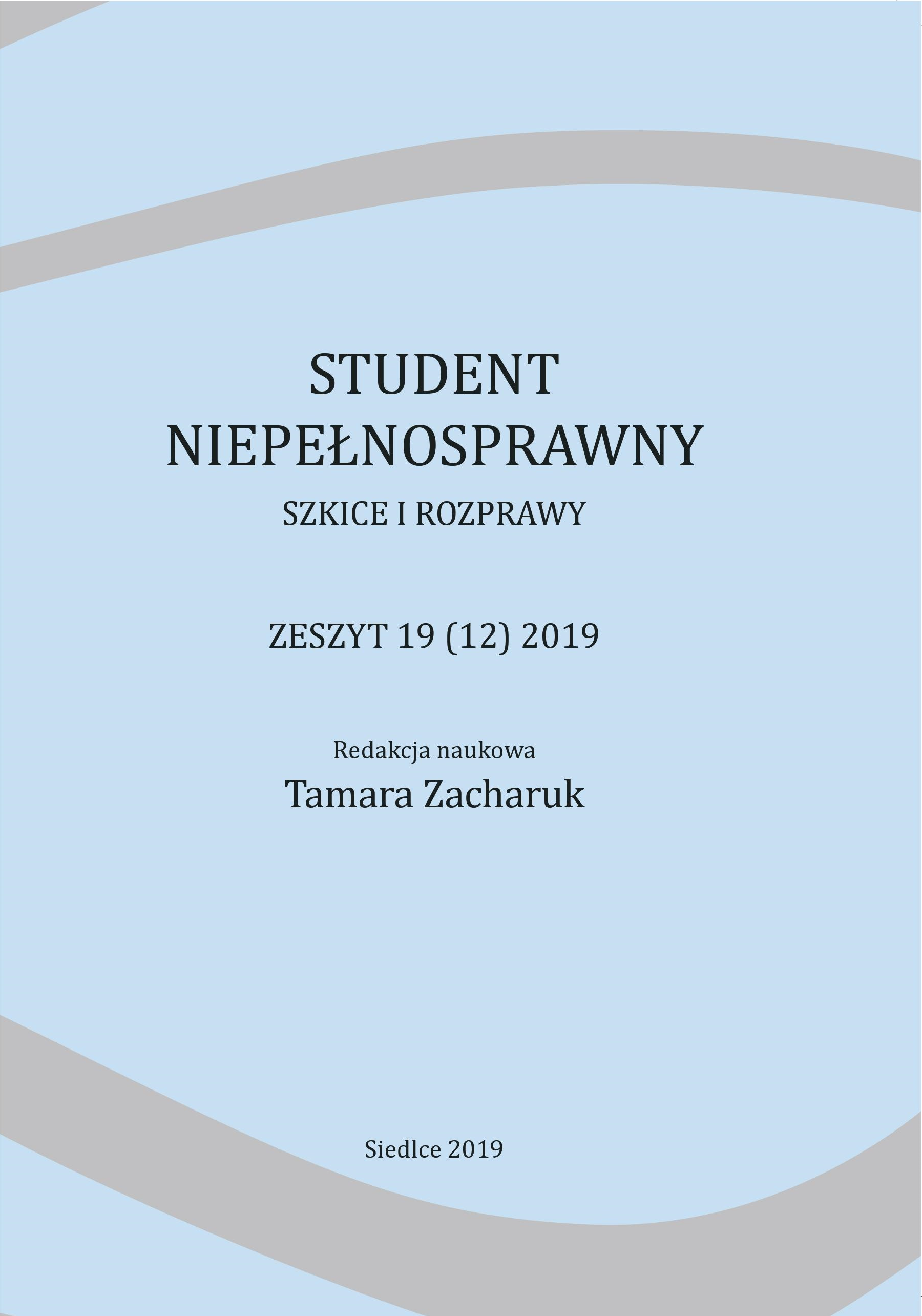Differences in achievements in learning English as a foreign language between the deaf/hard of hearing and hearing high school students in Serbia
DOI:
https://doi.org/10.34739/sn.2019.19.13Słowa kluczowe:
deaf and hard of hearing (D/HOH) students, hearing students, English, foreign language, test, achievements, grammar, vocabularyAbstrakt
This papers presents the results of research that was aimed at testing the performance of deaf and hard of hearing (D/HOH) high school students in learning English as a foreign language (EFL). The research examined the correlation between the age (number of years of learning EFL), the degree of hearing loss, the sex and the school success in the Serbian language with the achievements of the D/HOH students in solving an English Placement test. The differences in achievements between D/HOH students and those with a normal hearing status were also compared and analyzed. The results of the research indicate that although the D/HOH students achieve poorer results in learning English compared to students with a normal hearing status, they can be successful in learning English as a foreign language. The D/HOH students have some difficulties in learning English vocabulary and grammar. They need more time to successfully master a foreign language, so it is necessary to take into account the specificities of this category of EFL students and to adapt teaching methods and resources to suit their needs.
Pobrania
Bibliografia
Dimitrijević N., (1999), Testiranje u nastavi stranih jezika (Testing in Foreign Language Teaching), Zavod za udžbenike i nastavna sredstva, Belgrade.
Dimić D.N., (2003), Govorno – jezički deficiti kod gluve i nagluve dece (Speech and Language Deficities in Deaf Children), Društvo defektologa Srbije i Crne Gore, Belgrade.
Dimić N., Dinić M., Isaković Lj., (2012), Upotreba osnovnih glagolskih vremena kod gluvih i nagluvih učenika srednje škole (Usage of Basic Verb Tenses in Deaf and Hard of hearing High School Students), Beogradska Defektološka Škola, Društvo defektologa Srbije, Fakultet za specijalnu edukaciju i rehabilitaciju, vol. 18 (1), no. 52, 19-37.
Domagała-Zyśk E., (2012), Written Output of the Deaf and Hard of Hearing Primary School Students Learning English as a Second Language, "Roczniki Pedagogiczne" 4(40) 3, 93-110.
Urdarević I., (2014) Engleski kao strani jezik za gluve i nagluve učenike (English as a foreign language for deaf and hard-of-hearing pupils), "Beogradska defektološka škola", vol. 20 (2), no. 59, 269 – 293, Belgrade.
Urdarević I., Dimić N., (2014), Nastava engleskog kao stranog jezika za gluve i nagluve učenike u nekim evropskim zemljama i u Srbiji (Teaching English as a foreign language to deaf and hard-of-hearing students in some European countries and in Serbia), "Beogradska defektološka škola", vol. 20 (3), no. 60, 495 – 524, Belgrade.
Urdarević I., (2009), Test nivoa znanja engleskog jezika kod slušno oštećenih učenika (Test of English language knowledge level of hearing impaired students), Zbornik rezimea, Dani defektologa Srbije, Zlatibor.
Urdarević I., (2016), Specifičnost nastave engleskog jezika u školi za gluve i nagluve učenike (Specificity of Teaching English Language at School for the Deaf and Hard of Hearing Students), Masters thesis, Faculty of Special Education and Rehabilitation, Belgrade.
World Health Organization (WHO), Grades of Hearing Impairment (on – line), http://www.who.int/pbd/deafness/hearing_impairment_grades/en/ [11.04.2019].




